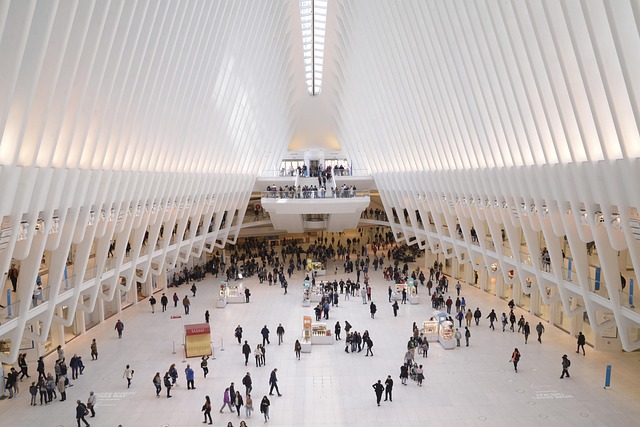Introduction to Recent Political Reforms in Nigeria
Nigeria’s political landscape is undergoing significant changes. Recent political reforms are reshaping the way elections in Nigeria are conducted. These reforms aim to address long-standing governance challenges in Nigeria. They also seek to reduce corruption in Nigerian politics. The goal is to create a more inclusive and effective system. This blog post will explore these changes in detail. We will also discuss how they impact various aspects of Nigerian society.
The Nigerian political landscape has always been complex. With over 200 million people and diverse ethnic groups the system is intricate. Political parties in Nigeria play a crucial role in shaping the nation’s future. However they often face criticism for not being inclusive enough. This is especially true when it comes to youth involvement in Nigerian politics. Many young people feel left out of the decision-making process. This needs to change for the country to move forward.
Elections in Nigeria have historically been marred by issues. From voter intimidation to ballot box snatching the challenges are numerous. Recent political reforms aim to address these problems. They focus on making elections more transparent and credible. This is crucial for building trust in the system. When people believe their votes count they are more likely to participate. This is a key step toward strengthening democracy in Nigeria.
Recent political reforms in Nigeria aim to address long-standing governance challenges and reduce corruption.

Overview of Nigeria’s Governance Structure
Nigeria’s governance structure is a fascinating blend of federalism and democracy. The Nigerian political landscape is shaped by its history culture and diverse ethnic groups. Understanding how the system works is key to grasping the challenges and opportunities it presents.
At its core Nigeria operates under a federal system. Federalism in Nigeria means power is shared between the central government and 36 states. This structure aims to balance unity and regional autonomy but it also brings complexities.
Elections in Nigeria are a cornerstone of its democracy. Held every four years they determine who leads at the federal state and local levels. However the process is often marred by issues like voter apathy and logistical challenges.
Political parties in Nigeria play a crucial role in shaping the nation’s direction. From the ruling All Progressives Congress (APC) to the People’s Democratic Party (PDP) these parties influence policies and governance. Yet internal conflicts and lack of ideology often hinder their effectiveness.
Youth involvement in Nigerian politics is growing but still faces hurdles. Young Nigerians are increasingly using social media and grassroots movements to demand change. However limited access to resources and political mentorship remains a barrier.
Governance challenges in Nigeria are numerous. From inadequate infrastructure to poor public service
Nigeria’s political landscape is complex due to its large population and diverse ethnic groups.
Key Objectives of the Recent Political Reforms
The Nigerian political landscape is undergoing significant changes. Recent political reforms aim to address long-standing issues and create a more inclusive and effective governance system. These reforms are not just about policies but about reshaping the future of Nigeria.
One of the key objectives of these reforms is to improve the integrity of elections in Nigeria. Free and fair elections are the cornerstone of any democracy. The reforms focus on reducing electoral fraud and ensuring that every vote counts.
Political parties in Nigeria play a crucial role in shaping the nation’s future. The reforms aim to strengthen these parties by promoting internal democracy and reducing the influence of money and godfatherism. This will ensure that parties truly represent the people’s will.
Youth involvement in Nigerian politics is another critical focus area. Young people make up a significant portion of the population and their active participation is essential for sustainable development. The reforms aim to lower the barriers to entry for young politicians and create platforms for their voices to be heard.
Governance challenges in Nigeria have been a major hindrance to progress. The reforms seek to address these challenges by improving transparency and accountability in public offices. This will help build trust between the government and the citizens.
Corruption in Nigerian politics has been a persistent issue
Youth involvement in Nigerian politics remains a significant challenge.

Demographic Analysis: Age and Gender in Nigeria
Understanding the Nigerian political landscape requires a deep dive into the demographic analysis of age and gender. Nigeria is a youthful nation with over 60% of its population under the age of 25. This demographic reality has significant implications for elections in Nigeria and the broader political system.
Youth involvement in Nigerian politics is a topic of growing importance. Despite their numbers young people often feel excluded from decision-making processes. This disconnect has led to calls for political reforms in Nigeria that prioritize inclusivity and representation.
The role of women in Nigerian politics is another critical area of focus. Women make up nearly half of the population yet their representation in political offices remains disproportionately low. Addressing this imbalance is essential for achieving equitable governance.
Ethnic politics in Nigeria further complicates the landscape. The country’s diverse ethnic groups often influence voting patterns and political alliances. This dynamic can either strengthen federalism in Nigeria or exacerbate divisions depending on how it is managed.
Corruption in Nigerian politics remains a significant barrier to progress. It undermines trust in institutions and hampers effective governance. Tackling this issue requires systemic changes and a commitment to transparency.
Political parties in Nigeria play a pivotal role in shaping the nation’s future. However many parties lack clear ideologies
Elections in Nigeria have historically faced issues like voter intimidation and ballot box snatching.
Impact of Political Reforms on Youth Participation
The Nigerian political landscape has always been a dynamic and complex arena. With a population where over 60% are under the age of 25 the youth represent a powerful force that could reshape the future of the nation. Yet for decades their voices have been sidelined in elections in Nigeria. This blog post explores how recent political reforms in Nigeria are creating opportunities for greater youth involvement in Nigerian politics and what this means for the country’s future.
Political parties in Nigeria have historically been dominated by older generations. This has often left young people feeling disconnected from the decision-making processes that directly affect their lives. However the winds of change are blowing. Recent political reforms in Nigeria are beginning to address governance challenges in Nigeria by encouraging more inclusive participation. These reforms are not just about opening doors for the youth but also about tackling deep-rooted issues like corruption in Nigerian politics.
One of the most significant reforms is the push for greater transparency and accountability. Corruption in Nigerian politics has long been a barrier to progress. It has eroded trust in institutions and discouraged young people from engaging in the political process. By addressing these issues political reforms in Nigeria are creating a more level playing field where youth can actively participate without fear of being overshadowed by unethical practices.
Building trust in the electoral system is crucial for strengthening democracy in Nigeria.

Gender Representation in Governance Post-Reforms
Gender Representation in Governance Post-Reforms: A New Dawn for Nigeria?
The Nigerian political landscape has long been a topic of heated debate. With elections in Nigeria often marred by controversy and governance challenges in Nigeria persisting many wonder if true change is possible.
Recent political reforms in Nigeria have sparked hope. These reforms aim to address corruption in Nigerian politics and promote inclusivity. But how effective are they in ensuring gender representation?
Women in Nigerian politics have historically been underrepresented. Despite making up nearly half of the population their voices are often sidelined. This raises questions about the role of political parties in Nigeria in fostering equality.
Youth involvement in Nigerian politics is another critical factor. Young Nigerians are increasingly demanding a seat at the table. Their energy and fresh perspectives could be the key to reshaping the system.
Federalism in Nigeria adds another layer of complexity. With diverse ethnic groups and regional interests ethnic politics in Nigeria often overshadows gender issues. Can federalism be a tool for progress or does it deepen divides?
The fight against corruption in Nigerian politics remains a top priority. Corruption not only undermines trust but also disproportionately affects women and youth. Addressing this is crucial for meaningful reform.
Economic Implications of the Reforms on Different Demographics
The Nigerian political landscape is undergoing significant changes with recent reforms that aim to address long-standing governance challenges in Nigeria. These reforms have sparked debates about their economic implications on different demographics. Understanding these impacts is crucial for anyone invested in the future of Nigeria.
Elections in Nigeria have always been a pivotal moment for the nation. With the introduction of new political reforms the stakes are higher than ever. These changes are not just about who wins or loses but about how the economic landscape will shift for various groups.
Political parties in Nigeria play a critical role in shaping these reforms. Their policies and agendas directly influence the economic outcomes for different demographics. It’s essential to scrutinize their plans to understand who stands to benefit or lose.
Youth involvement in Nigerian politics has been a game-changer. Young people are not just voters but active participants in shaping the political discourse. Their engagement is crucial for ensuring that reforms address the economic needs of the younger generation.
Governance challenges in Nigeria such as inefficiency and lack of transparency have long hindered economic progress. The new reforms aim to tackle these issues head-on. However the success of these efforts will depend on how well they are implemented across different regions.
Corruption in Nigerian politics remains a

Challenges Faced in Implementing Political Reforms
The Nigerian political landscape is a complex and dynamic arena that presents numerous challenges for those seeking to implement meaningful political reforms. From the intricacies of federalism in Nigeria to the pervasive issue of corruption in Nigerian politics the road to reform is fraught with obstacles.
One of the most significant challenges is the deeply entrenched nature of ethnic politics in Nigeria. The country’s diverse ethnic groups often prioritize their interests over national unity making it difficult to achieve consensus on critical issues. This fragmentation is evident in the way political parties in Nigeria operate often aligning along ethnic and regional lines rather than ideological ones.
Elections in Nigeria are another major hurdle. Despite being a cornerstone of democracy elections in Nigeria are frequently marred by irregularities violence and voter suppression. These issues undermine the legitimacy of elected officials and erode public trust in the political process.
Youth involvement in Nigerian politics is crucial for driving change yet young people often face significant barriers to participation. From a lack of access to resources to systemic discrimination the youth are frequently marginalized in political decision-making processes. This exclusion not only stifles innovation but also perpetuates the status quo.
Women in Nigerian politics also face unique challenges. Despite making up a significant portion of the population women are grossly underrepresented in political offices
Public Perception and Acceptance of the Reforms
The Nigerian political landscape has always been a topic of heated discussion. From the dynamics of elections in Nigeria to the role of political parties in Nigeria the conversation is ever-evolving. One of the most pressing issues today is the public perception and acceptance of political reforms in Nigeria. How do Nigerians truly feel about these changes? Let’s dive in.
Elections in Nigeria have historically been marred by challenges. From voter intimidation to outright fraud the process has often left citizens disillusioned. However recent political reforms in Nigeria aim to address these issues. The question is: are these reforms enough to restore faith in the system?
Youth involvement in Nigerian politics has been on the rise. Young people are no longer content to sit on the sidelines. They are demanding a seat at the table. This shift is crucial for the future of governance challenges in Nigeria. But will the older generation make room for them?
Corruption in Nigerian politics remains a significant barrier to progress. Despite numerous reforms the perception of corruption persists. This is a major hurdle for any political reforms in Nigeria to gain widespread acceptance. How can this cycle be broken?
Federalism in Nigeria is another area that requires attention. The current system often leads to ethnic politics

Case Studies: Success Stories and Failures
The Nigerian political landscape is a complex and dynamic arena that has seen both remarkable success stories and glaring failures. Understanding these case studies can provide valuable insights into the challenges and opportunities within the system. This blog post will explore key examples of triumphs and setbacks in Nigerian politics while addressing critical issues like elections in Nigeria political parties in Nigeria and governance challenges in Nigeria.
One of the most notable success stories in recent years is the increased youth involvement in Nigerian politics. Young Nigerians are stepping up to challenge the status quo leveraging social media and grassroots movements to demand accountability. This shift has led to the emergence of new political parties in Nigeria that prioritize transparency and inclusivity. However the journey is not without obstacles as corruption in Nigerian politics remains a significant barrier to progress.
On the flip side the failure of some political reforms in Nigeria highlights the systemic issues that continue to plague the nation. Despite efforts to address governance challenges in Nigeria many reforms have been undermined by ethnic politics in Nigeria and entrenched interests. This has created a cycle of stagnation that frustrates citizens and stifles development.
Federalism in Nigeria is another area where both successes and failures can be observed. While the system aims to promote regional autonomy and equitable resource distribution it has often been exploited to fuel division
Comparative Analysis with Other African Nations
The Nigerian political landscape is a fascinating subject especially when compared to other African nations. While countries like South Africa and Ghana have made strides in political reforms Nigeria still grapples with governance challenges in Nigeria that hinder its progress. This comparative analysis aims to shed light on these issues while offering actionable insights.
Elections in Nigeria have always been a hot topic. Unlike Rwanda where elections are relatively peaceful Nigeria often faces violence and voter intimidation. This raises questions about the effectiveness of political parties in Nigeria and their commitment to democratic principles.
Youth involvement in Nigerian politics is another area where Nigeria lags behind. In countries like Kenya and Senegal young people are actively engaged in the political process. However in Nigeria the youth are often sidelined despite their numbers and energy.
Corruption in Nigerian politics is a significant barrier to development. While countries like Botswana have managed to curb corruption Nigeria continues to struggle. This not only affects governance but also erodes public trust in the system.
Federalism in Nigeria is a double-edged sword. On one hand it allows for regional autonomy. On the other hand it often leads to ethnic politics in Nigeria which can be divisive. Countries like Ethiopia have managed to balance federalism and unity but Nigeria still has a long

Future Prospects for Nigeria’s Governance Structure
The future of Nigeria’s governance structure is a topic that sparks both hope and concern among its citizens. As Africa’s most populous nation Nigeria stands at a crossroads where political decisions today will shape its tomorrow. Understanding the Nigerian political landscape is crucial for anyone invested in the country’s progress. This blog post explores the future prospects for Nigeria’s governance structure while addressing key issues like elections in Nigeria political parties in Nigeria and the role of youth involvement in Nigerian politics.
Elections in Nigeria have historically been a mix of promise and controversy. While they offer a platform for democratic expression challenges such as voter suppression and electoral fraud often mar the process. The 2023 general elections brought renewed hope but also highlighted the need for political reforms in Nigeria. Strengthening electoral systems and ensuring transparency are critical steps toward building trust in the democratic process.
Political parties in Nigeria play a pivotal role in shaping governance. However the dominance of a few major parties often limits the diversity of voices in decision-making. Encouraging the emergence of new parties and fostering internal democracy within existing ones can lead to a more inclusive political environment. This is especially important for addressing governance challenges in Nigeria such as corruption and inefficiency.
Youth involvement in Nigerian politics is a game-changer. With
Conclusion: Evaluating the Overall Impact of Political Reforms
The Nigerian political landscape has undergone significant changes over the years. These changes have been driven by the need to address governance challenges in Nigeria and to create a more inclusive system. Elections in Nigeria have become a focal point for these reforms. They are not just about choosing leaders but also about shaping the future of the nation.
Political parties in Nigeria play a crucial role in this process. They are the platforms through which ideas and policies are presented to the public. However the effectiveness of these parties often depends on their ability to adapt to the evolving needs of the electorate. This is where youth involvement in Nigerian politics becomes critical. Young people bring fresh perspectives and energy that can drive meaningful change.
One of the most pressing issues in Nigerian politics is corruption. Corruption in Nigerian politics has been a major barrier to progress. It undermines trust in institutions and diverts resources away from essential services. Addressing this issue requires not just legal reforms but also a cultural shift towards accountability and transparency.
Federalism in Nigeria is another area that needs attention. The current system has its strengths but also its weaknesses. It allows for regional autonomy but can also lead to ethnic politics in Nigeria. This often results in conflicts that hinder national unity. Political reforms in Nigeria must
Frequently Asked Questions
What are the key goals of Nigeria\’s recent political reforms?
The reforms aim to address governance challenges reduce corruption and create a more inclusive and effective political system. Tip: Use governance indices like the Mo Ibrahim Index to track progress.
How do recent reforms aim to improve elections in Nigeria?
The reforms focus on increasing transparency and credibility in elections to reduce issues like voter intimidation and ballot box snatching. Tip: Follow updates from INEC (Independent National Electoral Commission) for election-related changes.
Why is youth involvement in Nigerian politics important?
Youth involvement is crucial for inclusive decision-making and ensuring the political system reflects the needs of younger generations. Tip: Explore platforms like NotTooYoungToRun for youth-focused political initiatives.
How can I track the impact of these reforms on Nigerian governance?
Monitor reports from organizations like Transparency International and the World Bank to assess changes in governance and corruption levels. Tip: Use data visualization tools like Tableau to analyze trends.
What role do political parties play in Nigeria\’s governance structure?
Political parties shape Nigeria\














